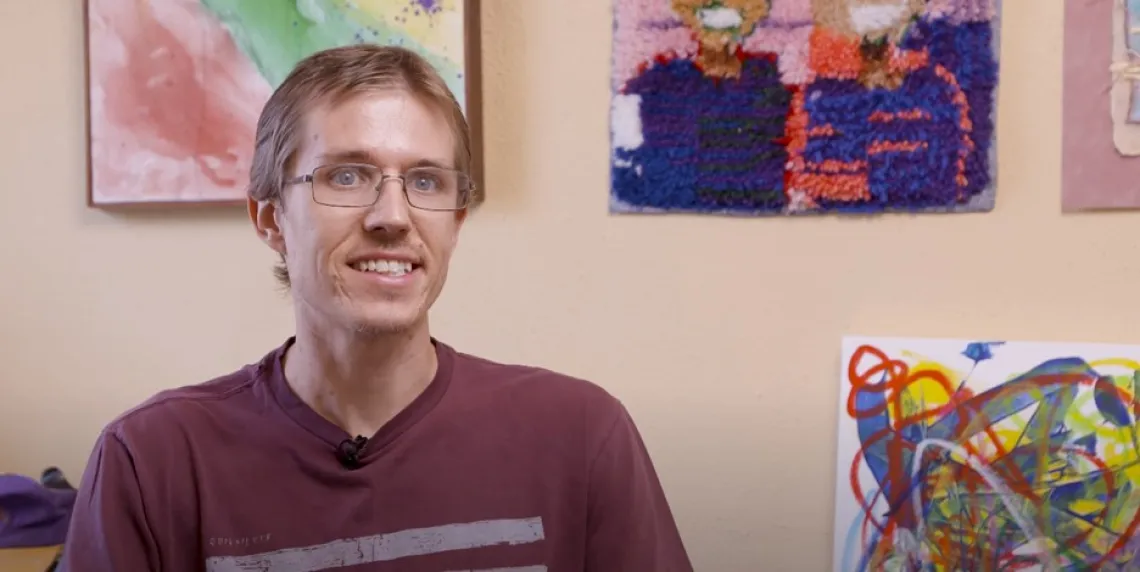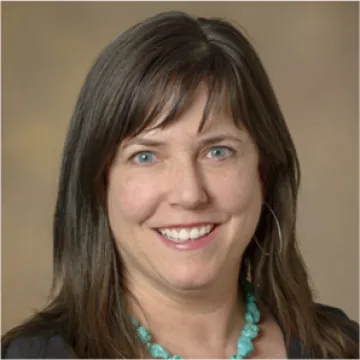Self-Advocates Share Their Stories in How to Speak Up for Your Health Video Series

By Drew Milne
The healthcare system can at times be difficult to navigate for everyone, but if a person has intellectual or developmental disabilities, it can present additional challenges. To make this process easier, the Sonoran Center, in partnership with the Arizona Developmental Disabilities Planning Council, has created a series of informative videos called How to Speak Up for Your Health.
Created by and for self-advocates, these videos feature disability self-advocates detailing how they make the most of their healthcare experience.
Julie Armin, PhD is the principal investigator on the project. She is an assistant professor in the Department of Family and Community Medicine at the University of Arizona and affiliated faculty with the Sonoran Center.
“We started thinking, ‘wouldn't it be interesting to have self-advocates tell their own healthcare stories? What they have experienced, how they advocate for themselves and what they wish the healthcare system would do for them, with them, and in collaboration with them?’”, said Armin. “Then we began speaking with self-advocates and with groups around the state. They provided input about where they saw the needs, because our goal was to focus on enabling self-advocates to tell their healthcare stories.”

Julie Armin, PhD.
The project came together from conversations among self-advocates, healthcare providers, and disability professionals which were initiated by the Division of Developmental Disabilities (DDD). The conversations aimed to address the need for training in working with patients with disabilities among the healthcare workforce.
The scripting, framing, and direction of the videos was guided by a steering committee made up of self-advocates, professionals, and allies. The steering committee and project team decided that shareable, short-form video content would be the best way to spread their message.
“Our topics were really focused on areas like ‘What does it mean to be a self-advocate?’ and defining that,” Armin explained. “We organized the videos by those topics: ‘Describe healthcare self-advocacy’, ‘What is healthcare self-advocacy?’, ‘How do you identify your needs when it comes to health care?’, ‘How do you value your health and health care rights?’, ‘How do you prepare for healthcare visits?’, ‘How do you make decisions about healthcare?’, and ‘How do you make decisions about health care and collaboration with supporters?’ All the videos follow that.”
The project aimed to be accessible in all aspects, including accommodating the needs of people with intellectual disability and other disabilities, such as deafness. The series also offers resources in both English and Spanish.
“In those conversations before we even submitted the proposal to the Arizona Developmental Disabilities Planning Council, it became clear that there were certain needs that were identified in the state,” Armin described. “One was videos in American Sign Language, which we have. We really wanted to think inclusively about the populations in the state of Arizona and make it accessible. There's also not enough out there for Spanish speakers with disabilities.”
The main audience for the video series is other people with disabilities. The hope is by hearing the stories of other people with disabilities and engaging with the conversation, they will be more empowered to advocate for themselves.
As Armin put it, “The hope is that other self-advocates will find them useful. That was something that our steering committee really wanted. They wanted these videos to be an example of role modeling. For example, thinking through how you might address a challenge like transportation that doesn't show up. How do they troubleshoot those challenges? What we try to do in this project is to offer a framework. We gave the self-advocates the opportunity to decide how they would answer those questions.”
While helping self-advocates share their stories and navigate the healthcare system is the main goal of the project, Armin hopes that healthcare providers and the general public can learn something new from the videos as well. This information can be especially helpful for healthcare providers in particular. Research has shown significant disparities in the quality of care that people with disabilities receive. An understanding of why these disparities exist can be an important step to closing this gap.
“I think in a lot of ways these videos could be useful for healthcare providers as well; to hear what self-advocates are saying about their experiences in the system,” Armin said. “We know that people with disabilities as a population in the United States have poorer health outcomes than the general population. For example, people with disabilities are less likely to get certain types of cancer screenings. These disparities are likely a combination of where people live, how they live, whether people with disabilities are included in society and how they're included in society, access to healthcare, access to jobs, and potentially healthcare provider bias.”
The project team emphasized that the videos are intended to be the beginning, not the end, of an open conversation on how to improve the healthcare experience of people with disabilities.
“I hope [the viewers] see examples of self-advocates who give them ideas and tools for advocating for themselves. That goes for everybody. Self-advocates, healthcare professionals and everyone.” Armin said. “I also hope for healthcare providers that they can see some of the work that self-advocates do to ensure that they have a good health care experience, and perhaps look at these videos as an opportunity to learn more about the specific challenges that might exist. It gives them an opportunity to advocate in partnership with their patients.”
Though this phase of the project ended in September 2023, Armin and the project team are looking forward to a new phase in which other self-advocates can come together and contribute their own content to the series.
“We're hoping to invite others who see the videos online to share their own videos with us. We're hoping to set up a process where other self-advocates can submit their videos and share them. That's probably rolling out early next year,” Armin said.
